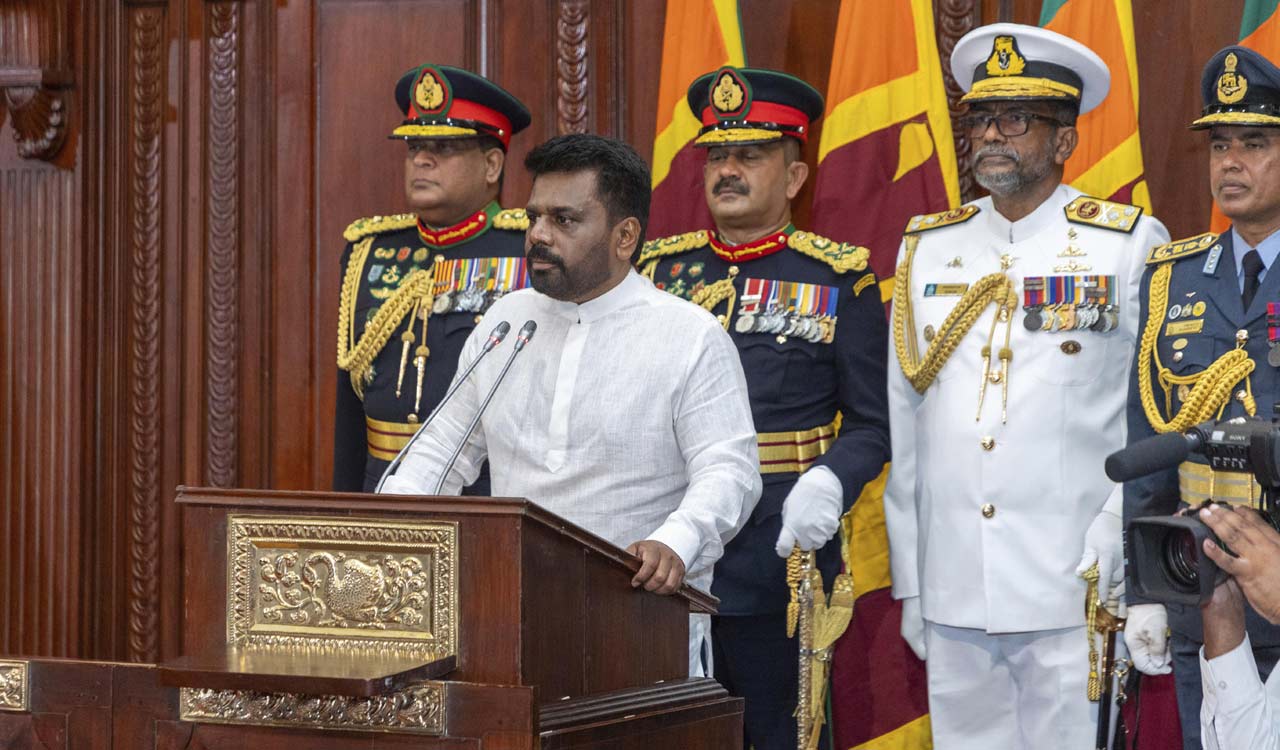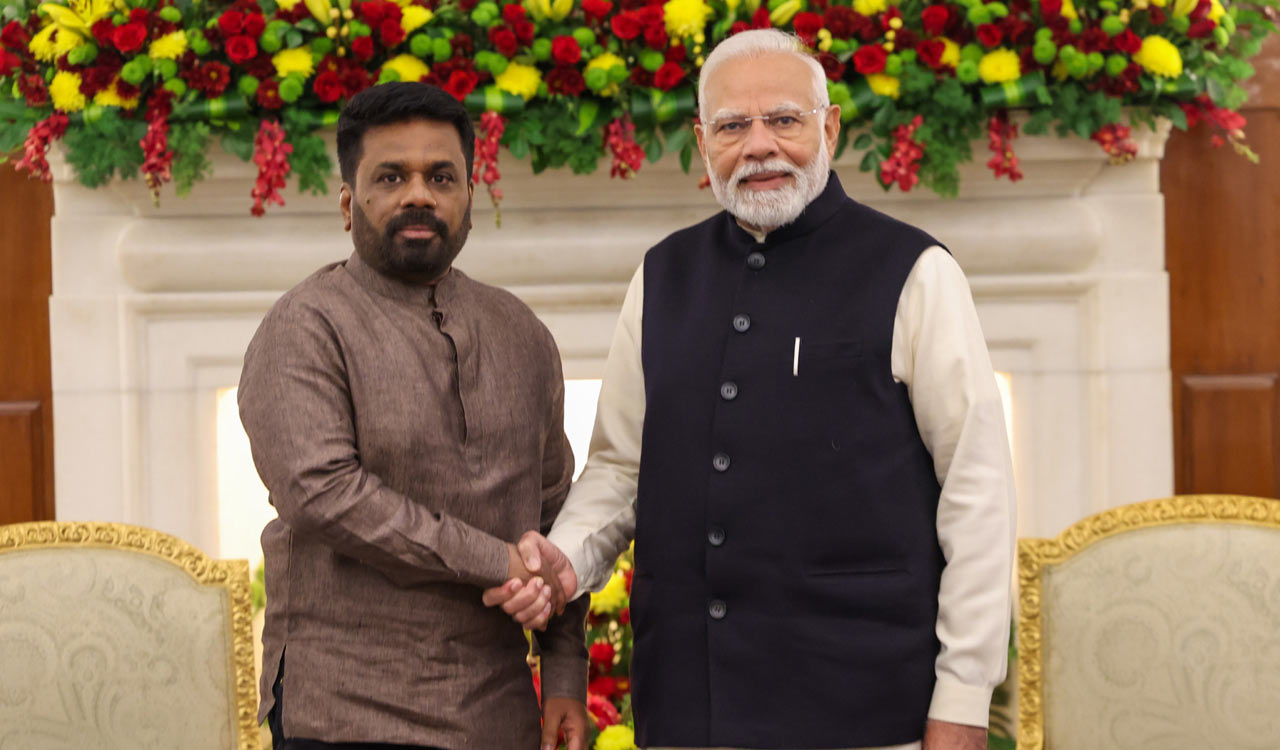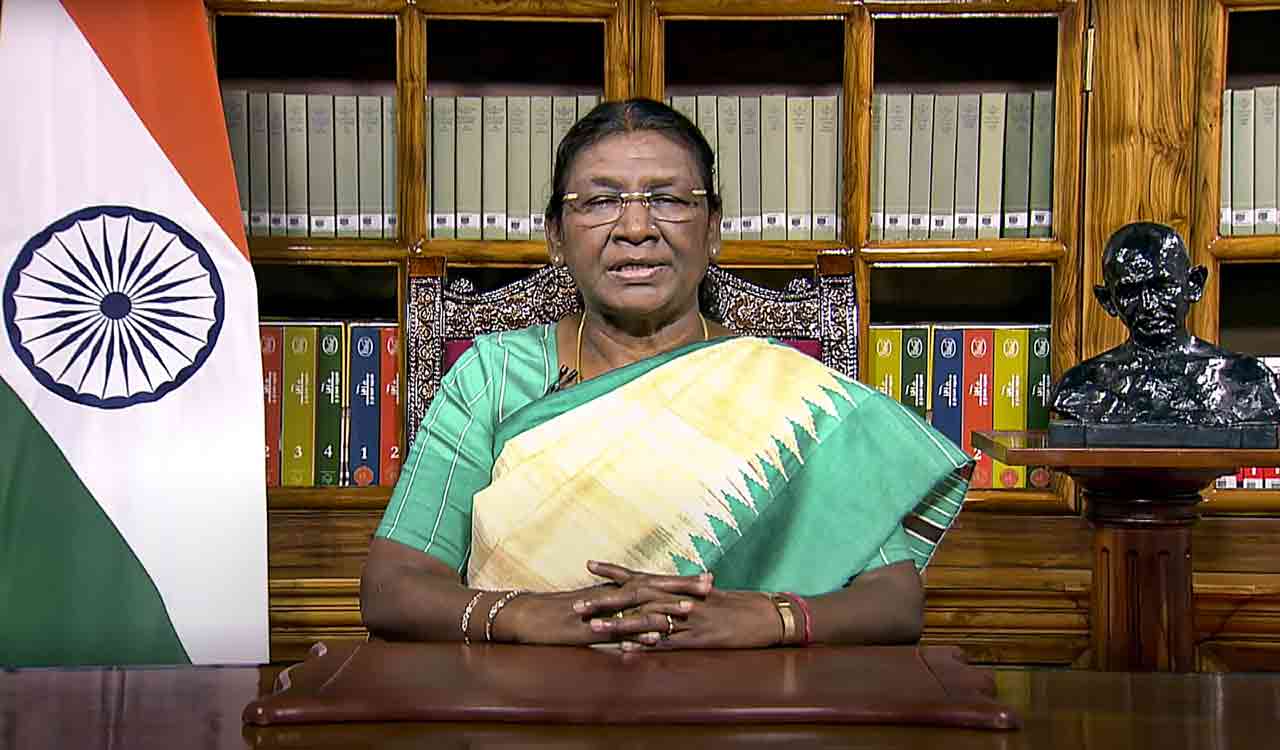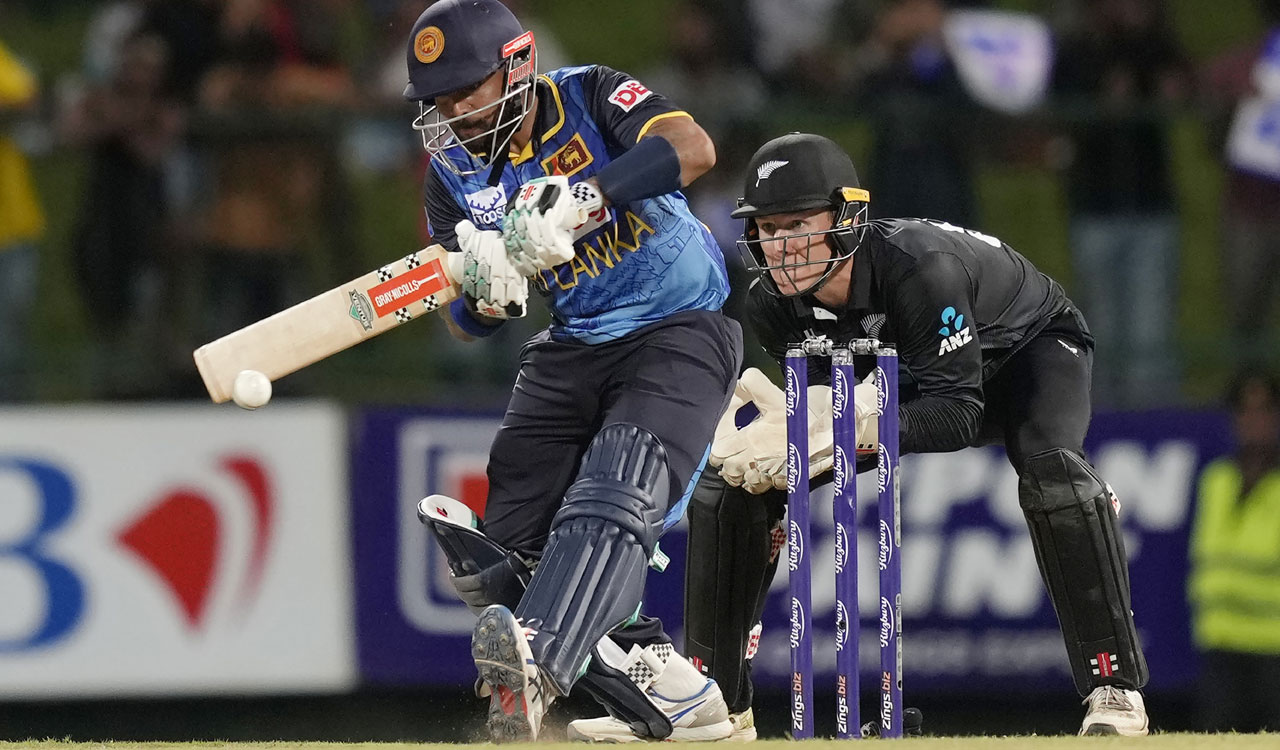Editorial: Lanka takes Left turn
Dissanayake’s dramatic victory can be attributed to his promise to revive the fragile economy and root out corruption

Nearly two years after a massive uprising triggered by the economic meltdown, Sri Lankan politics has just witnessed a tectonic shift with the election of hardcore Marxist leader Anura Kumara Dissanayake as the new President. From supporting the Maoist pursuit of capturing political power through the barrel of a gun to becoming an ardent believer in the power of the ballot box, Dissanayake has come a long way in his political journey. His dramatic victory in the presidential election — an unthinkable scenario a few decades ago — can be attributed to his promise to revive the fragile economy and root out corruption. The mandate reflected the mood for change. After suffering the fallout of an unprecedented financial crisis, inept leadership, widespread corruption and nepotism, the people of the island nation have demonstrated faith in his promise for a better future. This is the first time in the country’s history that a Marxist has been elected as the President. In a keenly contested election, Dissanayake, representing the National People’s Power (NPP) alliance, defeated his nearest rival Sajith Premadasa while the incumbent President and six-time Prime Minister Ranil Wickremesinghe finished a distant third, underlining the voters’ resolve to herald a new beginning. His promise of slashing taxes also found resonance with people who are reeling under poverty and finding it hard to keep pace with the high cost of living. In a way, the election was a referendum on Wickremesinghe who presided over the country’s descent into economic chaos and civil unrest.
One of the major challenges before Dissanayake is to steer the country out of the woods, repay the debts, regain the confidence of foreign and domestic investors and pull one-fourth of the population out of poverty. He simply cannot afford to let down the masses, whose anger and discontent had fuelled the 2022 protests that led to the ignominious ouster of then President Gotabaya Rajapaksa. Those nightmarish scenes of food and fuel shortages are fresh in the people’s minds. Though Dissanayake’s Janatha Vimukthi Peramuna (JVP) was involved in armed rebellion against the Sri Lankan government in 1971 and 1987-89 and the campaign against the Indian Peace Keeping Force (IPKF), it has eschewed the violent ideology of the past and has since joined the political mainstream. There is a temptation in Indian diplomatic circles to view Dissanayake as a pro-China leader, given his political leanings. However, the President-elect is well aware of the widespread public anger against China whose predatory policies are believed to have pushed the island nation into a debt trap. In a smart diplomatic move, India had hosted Dissanayake in February, despite the JVP’s history of anti-India rhetoric. On his return, he spoke warmly about the need to strengthen bilateral ties with India. A balancing act by the new President will stand his country in good stead geopolitically as well as economically.
Related News
-
Haiti gang attack on journalists covering hospital reopening leaves 2 dead, several wounded
13 mins ago -
21 dead as Mozambique erupts in violence after election court ruling
31 mins ago -
Cartoon Today on December 25, 2024
8 hours ago -
Sandhya Theatre stampede case: Allu Arjun questioned for 3 hours by Chikkadpallly police
9 hours ago -
Telangana: TRSMA pitches for 15% school fee hike and Right to Fee Collection Act
9 hours ago -
Former Home Secretary Ajay Kumar Bhalla appointed Manipur Governor, Kerala Governor shifted to Bihar
9 hours ago -
Hyderabad: Organs of 74-year-old man donated as part of Jeevandan
9 hours ago -
Opinion: The China factor in India-Nepal relations
9 hours ago




